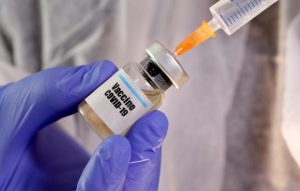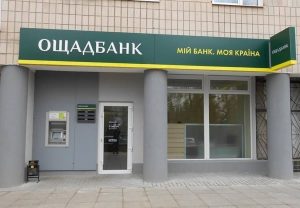
The Ministry of Health is in negotiations with foreign companies regarding the purchase of vaccines against COVID-19 immediately after their registration, Health Minister Maksym Stepanov has said during the hour of questions to the government in the Verkhovna Rada.
“We are negotiating with AstraZeneca regarding the number of vaccines they will be ready to supply to us. It has already been decided that, if confirmed, we are ready to make an advance payment. In addition, we are negotiating with a Chinese manufacturer, which is also at the third stage of testing. Ukraine was accepted into the COVAX initiative on the distribution of vaccines – 20% of the population, about 8 million doses for our country. The process of signing the relevant agreements, memorandums is underway, so that after the registration of vaccines we could receive them. We also communicate with other companies,” he said.
In addition, the minister said that the Ministry of Health is increasing its capacity to combat the pandemic.
“Laboratory centers are provided with tests for about 1.5 months. The tests are purchased mainly from two Ukrainian manufacturers, they are also purchased at the expense of the World Bank. In five months, we resumed the work of laboratory centers (from four to 69), and increased the number of PCR tests per day from 200 to almost 25,000. The total number of tests made has already reached almost 1.7 million,” Stepanov said.
He also noted that the situation with the incidence of doctors with COVID-19 has changed: to date, the number of sick doctors has decreased by almost four times.

Almost all works were carried out manually, because it is impossible to use heavy equipment at the object, co-owner of the company Yevhen Konovalov told Interfax-Ukraine.
The new alleys were paved with uniform pattern granite tiles and new street light poles with modern LED lamps were installed, the company said.
The stairs, lecture center and art compositions were decorated with lighting.
Also, the retaining wall was reinforced. Benches were installed. New trees and shrubs were planted.
Automatic retractable poles were installed to limit access of vehicles to the alley. In addition, the runoff water system was replaced.
Peizazhna Alley is a landmark in central Kyiv. A view of Podil and the Dnipro River opens from the observation platform, which is located in the Upper City.
The alley was constructed in 1980. Sculptures, art installations and a square appeared there as time went on.
The facility requires an extensive overhaul. The second stage of the modernization starts in the near future and will be completed in 2021.
The project was carried out by Rostdorstroy LLC, a part of the RDS group of road construction companies, which won a tender worth UAH 110 million at the beginning of 2020.
RDS Group is included in the top three road construction companies of Ukraine. It includes Kyivshliakhbud and Rostdorstroy. The core business is construction, reconstruction and maintenance of roads and bridges, construction of airfield complexes.
As of July 2020, the company worked in nine regions of Ukraine and had ten production facilities. In particular, it was constructing concrete road N-14 Kropyvnytsky-Mykolaiv, a railway overpass road and a section of the first in Ukraine concrete road within the framework of the overhauls of highway N-31 Dnipro-Reshetylivka in Poltava region. In 2019, the company won a World Bank’s tender for works on first-category highway M-03 Kyiv-Kharkiv-Dovzhansky.
The ultimate beneficial owners of RDS Group are Ukrainian citizens Yuriy Shumakher and Yevhen Konovalov.
KONOVALOV, KYIV, MODERNIZATION, PEIZAZHNA ALLEY, RDS, SHUMAKHER

The Cabinet of Ministers at a meeting on September 2 updated the principles of strategic reform of state-owned banks, which envisage reducing the state’s share in the banking sector from 60% to 25% by 2025 through partial or full privatization of each of the four state-owned banks.
According to the text of the corresponding document, posted on the website of the Ministry of Finance, the state plans to find a minority investor for Ukeximbank with potential privatization in the long term.
In addition, the Cabinet of Ministers kept plans for the state’s withdrawal from PrivatBank’s capital in the future, as well as for converting a loan from the International Finance Corporation (IFC) of the World Bank into additional capital of Ukrgasbank. In particular, it is planned that an agreement between the IFC and Ukrgasbank will be concluded by October 2020.
The principals of strategic reform of state banks also indicate that at the moment the state is creating all the necessary prerequisites to ensure the entry of international financial organizations into the capital of Oschadbank by the end of 2020, in particular in October 2020 the latter is planned to enter the Deposit Guarantee Fund.
According to the government’s expectations, the participation of international financial organizations in the capital of Oschadbank will lead to a major or full privatization of the bank by the end of 2025.
The corresponding document also specifies that preparations for the state’s withdrawal from the capital of the banks will begin after the end of the “coronavirus crisis” and the achievement of a stable economic recovery (GDP growth over two quarters), but no later than December 2021.

Many people, who have become vegetarians, risk gaining negative experience of eating poor quality seasonal fruit and vegetables, says nutrition expert Veronika Vero, who is also an author of health improvement programs.
“In my practice, I often noticed the presence of nitrates in seasonal fruit. Since vegetarians often have an increased sensitivity to tastes, such people may have a stronger reaction to nitrate-containing food than ‘omnivorous’ people,” Veronika said.
According to the expert, after long body purification, consumption of any contaminated food may cause at least an allergic reaction or even a serious poisoning. This is connected with changes in vegetarian’s metabolic processes.
“The body of a person consuming both animal and plant food can accumulate toxins for years, but finally this may cause liver cirrhosis or another serious disease. As to vegetarians, their bodies response immediately as they do not accumulate toxins,” Vero said in a program on healthy nutrition on the Expert Club YouTube channel.
She said people, who decided to become vegetarians, first of all should focus on self-improvement and self-education, because learning healthy nutrition programs is one of the most important tasks of a person, who decided to refuse from eating meat.
Veronika Vero, a vegetarian and healthy nutrition expert, spent more than eight years of training at a research and development center. She is the author of several programs, seminars, as well as physical, mental and energy retreats.
The full video is available on the Expert Club YouTube channel.
EXPERT, EXPERT CLUB, FRUIT, HEALTHY NUTRITION, MOROZOV, URAKIN, VEGETARIANISM, VERO

Doctor of Biological Sciences Sviatoslav Morozov, who is also a healthy nutrition expert, says food producers first of all aspire to reduce their products’ cost value and often ignore the harm they may cause to consumers’ health. Otherwise, they will be simply unable to withstand the market competition.
“Speaking about monotonous diet for farm animals and various chemical additives, they are used not to poison consumers. Nobody pursues such a goal. The task is different – to cut the cost value and make products with a very long shelf life,” Morozov said.
In a commentary to the Expert Club YouTube channel, the scientist also noted that these rules are used for all categories of food, including meat, dairy and vegetarian products.
“The problem of chemical additives and foreign substances, which could get into food in the process of animal or plant breeding as well as during their processing, is very topical today. For example, natural wine from the wood can be stored for only three days, after which yeast appears in it. It can be stored for a very long time only due to chemical additives,” the biologist said.
According to Morozov, in order to make sure that the food is clean, one should know the brands which are certified to make products without harmful additives. Today, this can be easily done through the Internet.
The full video is available on the Expert Club YouTube channel.
EXPERT, EXPERT CLUB, HEALTHY NUTRITION, MOROZOV, URAKIN, VEGETARIANISM, VERO